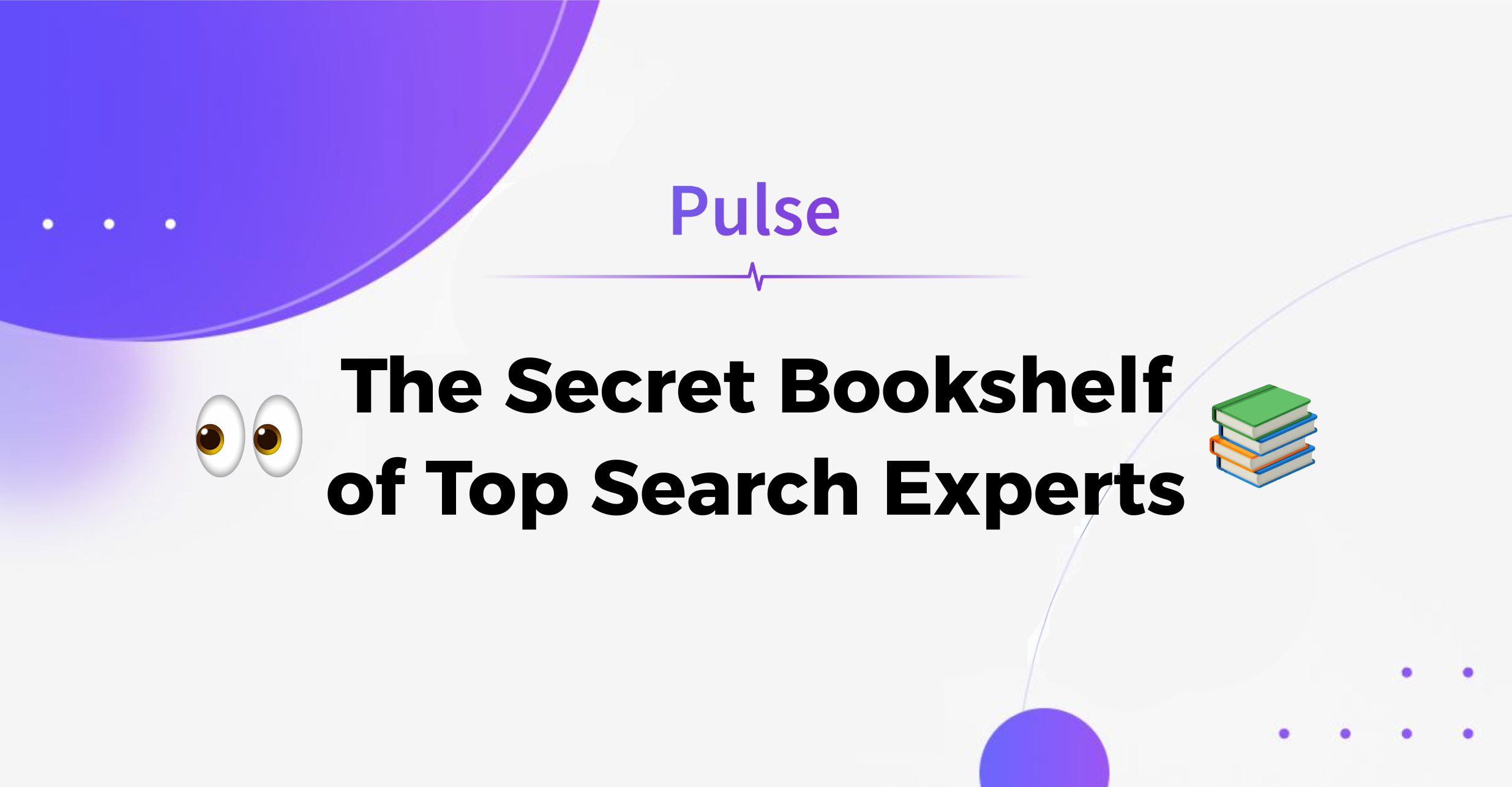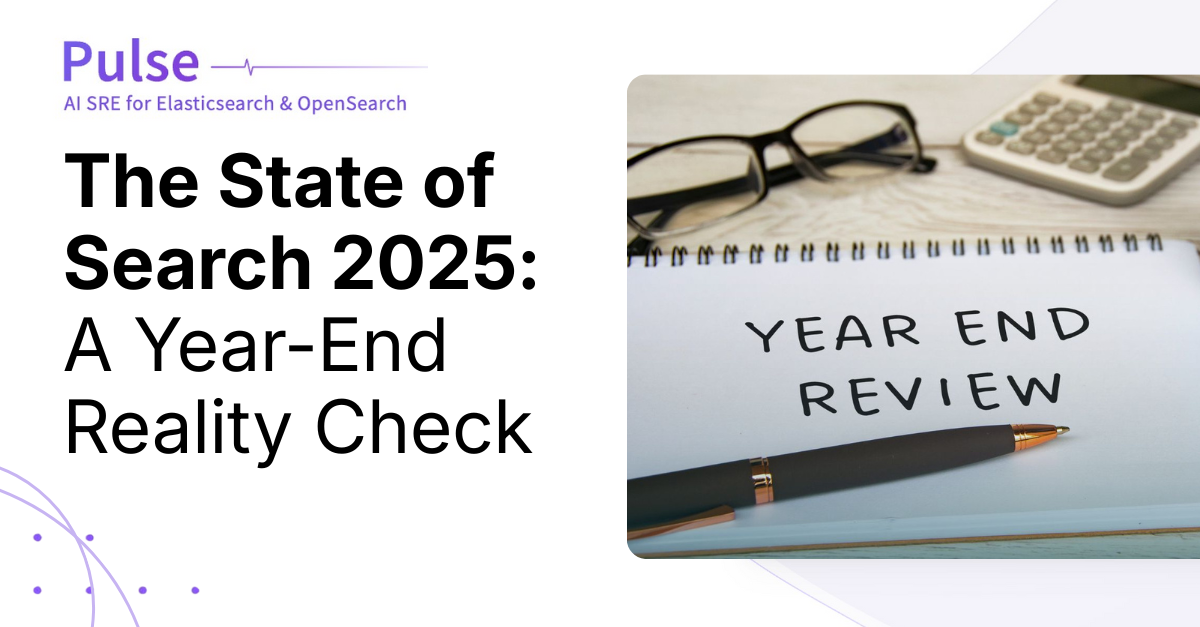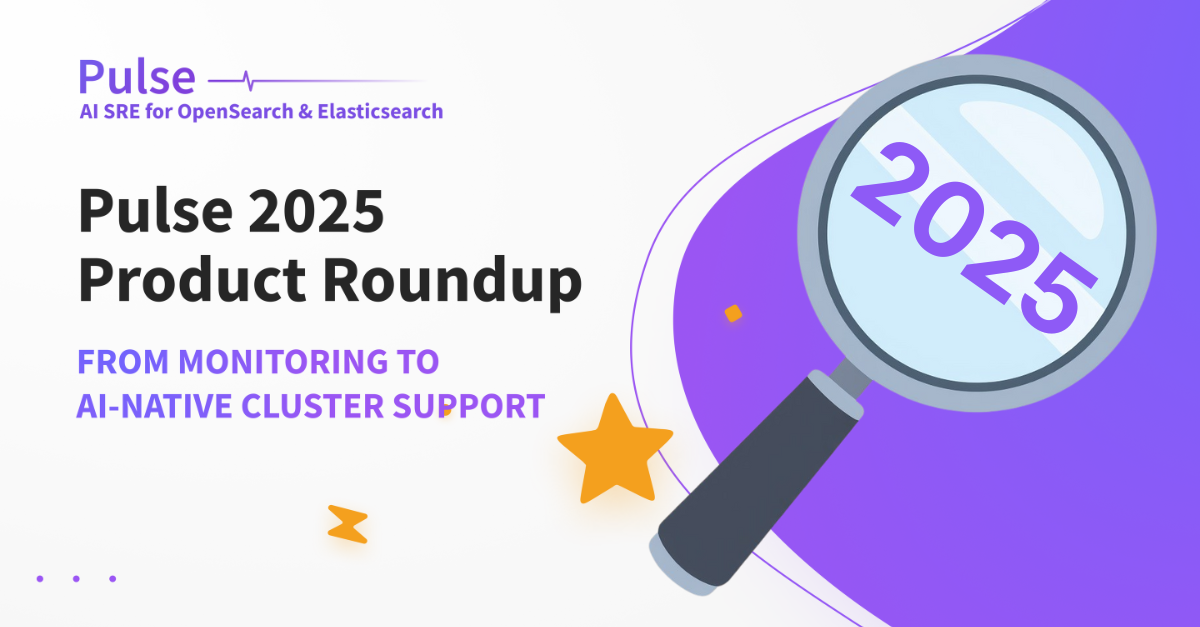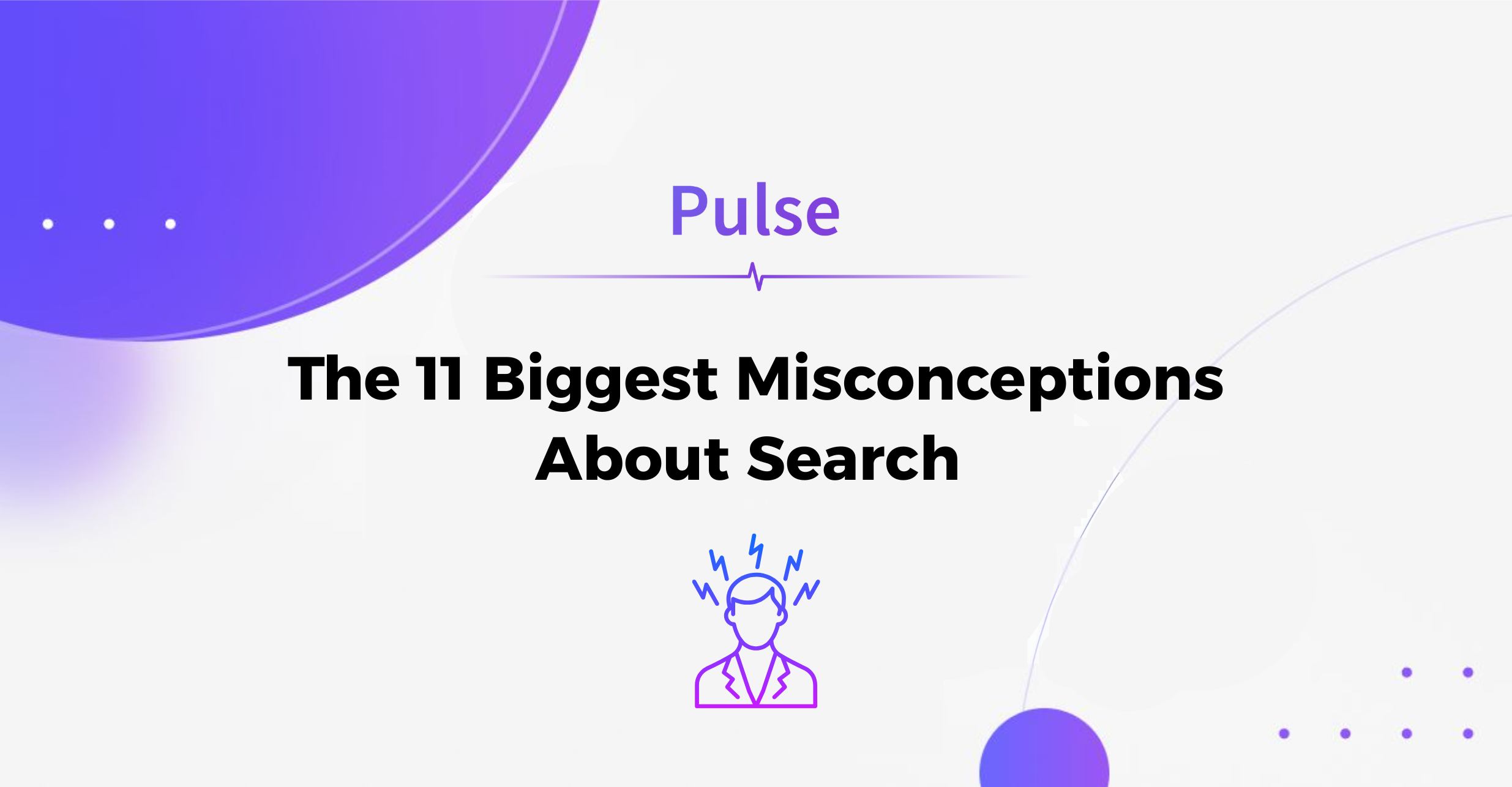The Secret Bookshelf of Top Search Experts
Over the last several months, we've been steadily featuring the Top Voices in Search Tech, learning from their wisdom and experience.
One of the questions we've asked is “What lesser-known books, blogs, or resources have impacted the way you think about search?”. The responses have been both creative and surprising.
We've collected this list of books/resources/podcasts here in one place.
🔧 Technical Foundations
A series of recommended technical books and resources that deepen understanding of systems, architecture, and the science of search itself.
Books
Designing Data-Intensive Applications - by Martin Kleppmann
David Tippett calls it essential: “It’s by far the best book I’ve ever read, whether you’re a search engineer or just a regular engineer.” A masterclass in scaling, consistency, and the real-world trade-offs behind data systems.
97 Things Every Programmer Should Know - by Kevlin Henney
Dmitry Kan recommends this for sharpening engineering instincts and cultivating a culture of iteration - the same mindset that great search engineering demands.
The Practice of Programming - by Brian Kernighan & Rob Pike
This, too, is recommended by Dmitry Kan
Designing the Search Experience - by Tyler Tate & Tony Russell-Rose
Charlie Hull calls it an overlooked gem: “It’s not very well-known, but I often recommend it and find that people haven’t heard of it.” It bridges UX and relevance, showing how interface decisions shape perception of “good search.”
Ambient Findability - by Peter Morville
Erik Hatcher points to this book as a reminder that search isn’t just retrieval - it’s discovery. Morville connects information architecture, serendipity, and human behavior in ways that resonate deeply with anyone building modern search.
Prompt Engineering for LLMs - by John Berryman & Albert Ziegler
Brian Pederson says this approachable guide gave him the tools to actually build with AI: “As a non-technical person, I was able to create working agents for my business after reading it.”
Blogs & Podcasts
SoftwareDoug - A blog by Doug Turnbull
This blog draws praise from David Tippett and Trey Grainger for balancing theory and practicality.
Story of Search - A digital resource by Nick Zandraznney / Bonsai
Eric Pugh calls it “a hidden gem.” An interactive, three-minute journey through TF-IDF, tokens, and term frequency that turns core IR concepts into something visual and fun.
-
This is Trey’s go-to for applied examples and conceptual clarity.
-
Rafał Kuc says, “I’m still learning from almost every post.”
Anything written by Jo Kristian Bergum
According to Trey, Jo Kristian Bergum "is worth reading. He’s a wealth of knowledge, and I try to follow everything he puts out. Definitely someone to keep on your radar."
How AI is Built Podcast - a podcast by Nicolay Gerold.
Doug Turnbull says: "He did an entire season talking to search experts on AI and RAG topics, and I’d highly recommend it - you’ll get a variety of perspectives. There’s no single 'right' way to do search; many approaches can work, and this podcast does a fantastic job showcasing that.
🧠 Human-Centered Thinking
In addition to the list of recommended technical resources, we also received several responses that aren't specific to the technical side of search at all. These remind us that behind every query is an actual human with biases, goals, frustrations, and expectations. Here are the books that our Top Voice recipients have found particularly impactful in this area.
Invisible Women - Caroline Criado Perez
Atita Arora calls it "a wake-up call for anyone in product or AI". The book reveals how most datasets default to male as "normal" and treat women as edge cases. It's often not intentional bias; it’s unconscious exclusion through lack of consideration.
Thinking, Fast and Slow - by Daniel Kahneman Also from Atita - a primer on cognitive bias and user decision-making that helps explain why users click, scroll, or abandon.
Mismatch - by Kat Holmes
Atita once again: This is a book that reminds us that “When you design search that works for someone with limited typing ability, you often end up creating a better search for everyone.”
The Design of Everyday Things - Donald Norman
Mark Harwood notes that it forever changed how he sees design failure. IWe go through life surrounded by examples of bad design and often blame ourselves when things go wrong. Norman flips that perspective. He shows how design shapes behaviour, and how thoughtful choices can prevent confusion and errors. It’s a book that teaches us to question assumptions and think more critically about how people interact with the things we build.
How to Win Friends and Influence People - by Dale Carnegie
Alessandro Benedetti says this book transformed how he leads and collaborates: “It taught me to step back and think from the other person’s perspective… Success in our field isn’t just about code - it’s about trust and influence.”
💡 Join the Conversation
This is part of our ongoing Top Voices initiative, where industry leaders share their unfiltered perspectives on current state and future of search technology. Each expert brings their wealth of experience building and scaling search systems in production environments.
👉 Explore more expert perspectives in our complete Top Voices In Search Tech series
👉 Know a Search Tech guru who deserves to hold the "Top Voice" title? Nominate them here
About Pulse
Pulse is the AI SRE for Elasticsearch and OpenSearch. By combining a proactive platform with round-the-clock expert guidance, Pulse helps enterprises reduce costs, resolve issues faster, and improve performance. Trusted by leading companies worldwide, Pulse transforms search operations into a reliable, scalable foundation for growth. Learn more at https://pulse.support.





